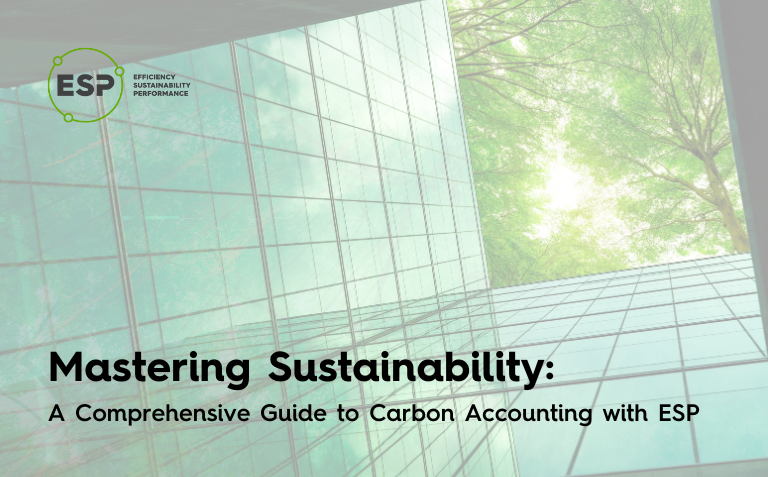Platforms to transform beyond the low-hanging fruit
Innovation in sustainability, and in particular monitoring, is a key component of transformation. Why is it so important.
There are some specific challenges that need to be resolved by 2030 if we’re going to deliver according to the Paris Agreement on climate change, which include:
- The need to deliver value and productivity now, to support uptake and help focus time on what’s important
- The need for continual improvement, not just the low hanging fruit enabled by government subsidies
- How to start the transformation of business, to integrate sustainability
When it comes to meeting these challenges, carbon and energy professionals have a role to play – but measurement and control will occur much faster.
What does transformation look like?
It’s known as Industry 4.0 – Internet of Things (IoT), big data and machine learning – and it’s about defining a vision for future business. It’s about how technology is being harnessed to drive transformation and creating a competitive advantage for Kiwi companies. Data management and controls will be integrated into business operations, and while data analytics, robotics and automation, and IoT are consistently the top three chosen technologies across all digital maturity levels, they also include:
- Additive manufacturing / 3D printing
- Augmented and virtual reality
- Big data
- Cyber security
- Digital twin
- Modelling and simulation
It’s these kinds of technological innovations that are perceived to add the greatest value and will be the enablers for change.
Built environment transformation
Carbon professionals traditionally haven’t had the tools needed to realise the importance of data and technology-based improvements in the built environment. We need to reduce demand on our electricity supply, which means that controls, and by extension the systems and data to manage them, are key. Why? Because active controls could save up to 230 EJ cumulatively to 2040 (141 EJ in non-residential), roughly twice the energy consumed by the entire buildings sector in 2017.
They’ll also help deliver emission and cost improvements, and boost occupant productivity.
As we progress from low-hanging fruit into operational and behavioural change, technology and data is critical to deliver the dynamic feedback needed to underpin behaviour and sustaining gains. Currently, there is some good work underway around abatement costs. However, sustainability needs to be integral to any business plan, and that means having the tools on board to provide information and visibility at the speed of operations.
Technology to deliver productivity
Just like finance, HR, and operations teams, carbon and energy professionals need to deliver timely data, actionable insights and reporting. One of the biggest challenges they face is how systems relate and integrate. Many of them provide source data, but with varying speeds and accuracy.
This is partly due to the fact that carbon and energy professionals are as yet unaware that there’s tech available now to achieve this.
They’re tied up in what they were doing yesterday, and don’t always have the time to look ahead and see that there are ways to collect data and aggregate it with other data in order to drive decision-making.
Not only that, but these solutions can “look” like your business, be aligned with a business’s organisational hierarchies and are surprisingly simple to use. Along with this, machine learning is now gathering vast amounts of data being collected and processing it, providing meaningful, actionable insights.
We’re ready for Industry 4.0
Our message at the conference was that ESP has the tools carbon professionals need to deliver operational information for Industry 4.0, and that we are now looking to partner with other service providers in the market.
We recently acquired BraveGen, a solution that has arguably the leading capability in sustainability reporting. Combined with our solutions, this completes a suite of services to accurately collect, report and reduce carbon emissions.
Integrating operational data into business performance

Big Data – Aggregated for actionable intelligence

This data can then be made available consistently and in a timely manner right across the business, providing the information to integrate sustainability into your business performance.
One of the benefits of technology innovation is that it continues to become more efficient. The business case to implement monitoring and reporting tools is no longer premised on a single use case alone. Once data is in the cloud, it can be harnessed for multiple purposes and to create new innovations e.g. stakeholder engagement and supporting behavioural change.
At ESP, we recognise that innovation doesn’t stop – it’s continual, evolving, and dynamic. That’s why we continue to invest millions in our solutions, and why we’re the leading provider of productivity and information that underpins the measurement, planning and reporting of carbon and utility performance.
Keen to see our tech in action? Book a meeting today.



